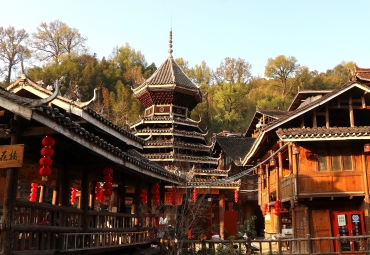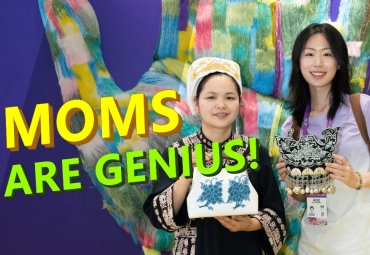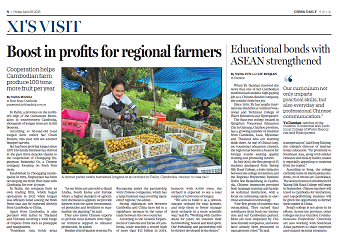Guizhou spearheads bronze bolete mushroom cultivation

Guizhou is able to artificially cultivate bronze bolete mushrooms. [Photo/ddcpc website]
As winter approaches, wild mushrooms are hard to find. However, at the world's first bronze bolete mushroom factory in Southwest China's Guizhou province, over 200,000 plump bronze bolete mushrooms are harvested daily.
At the factory, each workshop replicates the specific temperature, humidity, airflow, and lighting conditions required for bronze bolete mushrooms at various stages of natural growth.
Every day, 108,000 sterilized mushroom bottles move along an automated production line, undergoing processes like substrate filling, perforation, re-sterilization, inoculation with starter cultures, and soil covering before being transferred to greenhouses.
The growth cycle for bronze bolete mushrooms is 45 days. Around day 35, workers will inspect the mushroom bottles and keep only the strongest mushrooms while removing the rest.
This factory is the first of its kind globally. Normally, bronze bolete mushrooms require symbiosis with specific trees, making artificial cultivation challenging. After years of lab research and extensive field studies, scientists discovered that bronze bolete mushrooms are less dependent on host trees than previously thought, making artificial cultivation possible.
The full technological system – from wild strain domestication and variety improvement to germplasm preservation, superior strain breeding, and factory cultivation – took eight years to develop and cost 220 million yuan ($30.25 million).
Bronze bolete mushrooms, a symbol of high-tech microbial agriculture, are now exported to eight countries, including the United States, the Netherlands, and Japan.
All rights Reserved. 京ICP备13028878号-8







 Overview
Overview Guiyang
Guiyang Guian New Area
Guian New Area Liupanshui
Liupanshui Anshun
Anshun Qianxinan
Qianxinan Qiandongnan
Qiandongnan Qiannan
Qiannan Zunyi
Zunyi Tongren
Tongren Bijie
Bijie Guizhou commits to culture preservation and rural vitalization
Guizhou commits to culture preservation and rural vitalization Guizhou voice at 2025 national two sessions
Guizhou voice at 2025 national two sessions Meet the 'genius moms' at Shenzhen cultural fair
Meet the 'genius moms' at Shenzhen cultural fair 

